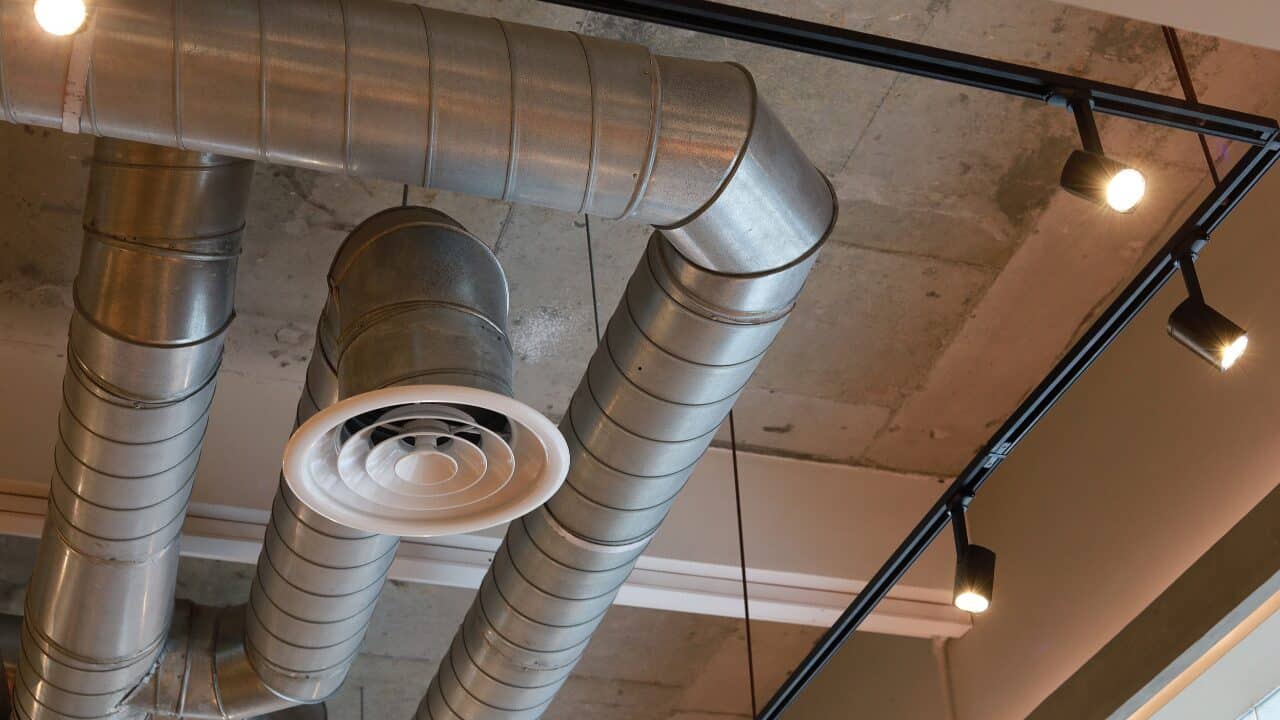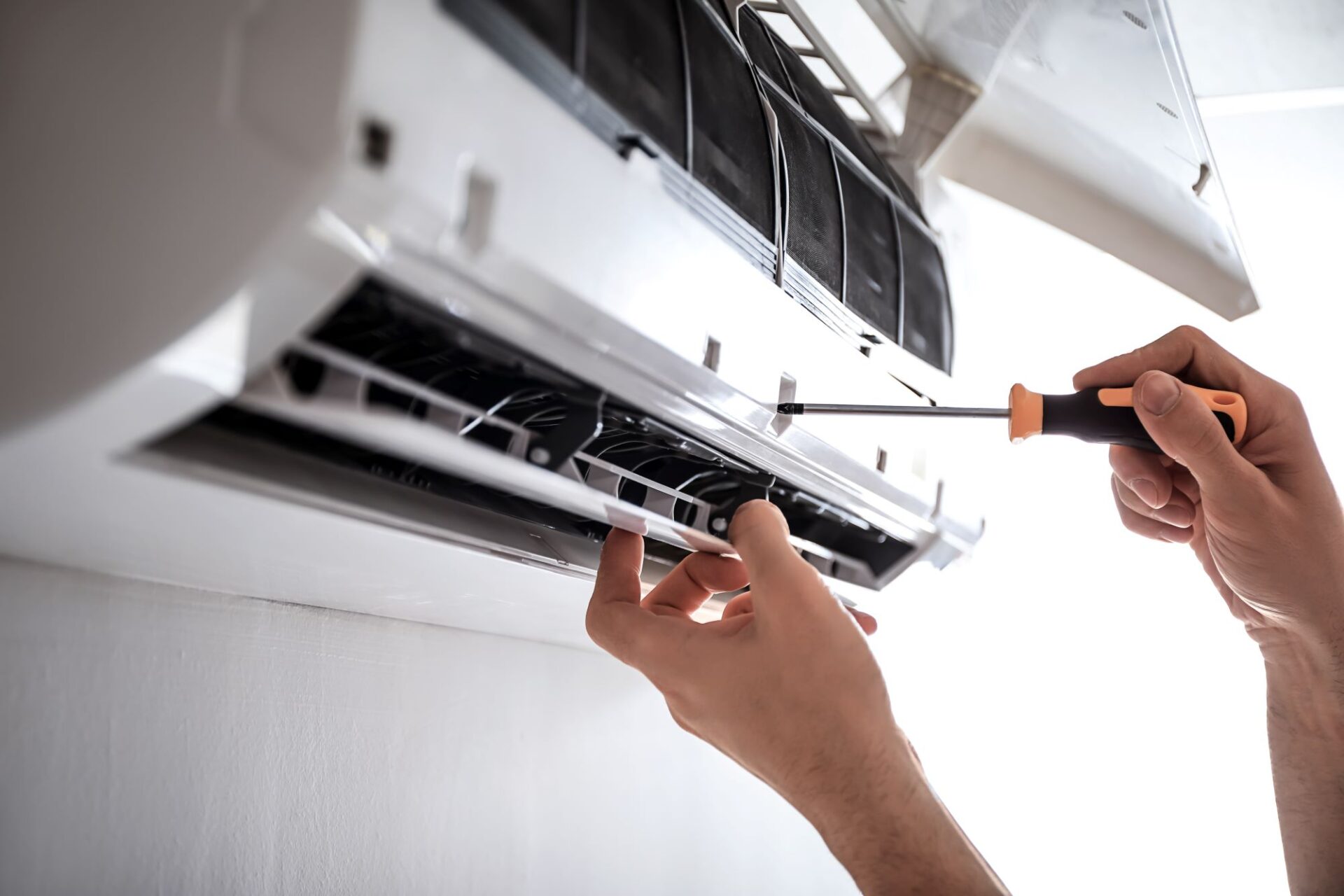Picture yourself in a hot summer setting, and your trusty air conditioner stops working. We all dread the possibility, but do not worry! With some know-how and a can-do attitude, you can troubleshoot and fix common AC issues before resorting to a sweaty meltdown.
Whether your AC is experiencing a complete shutdown or not performing at its best, addressing air conditioner repair needs is crucial to maintaining a cool and comfortable indoor environment. Here is an AC repair checklist that could save the day, improve indoor air quality, and save energy bills.
Table of Contents
Air Conditioner Won’t Turn On
Imagine this: you walk up to your thermostat, expecting the cool breeze to envelop you, only to find nothing but silence. Check again to ensure your thermostat is in the “cool” setting and the intended temperature is lower than the room temperature. Also, inspect your circuit breaker – a tripped breaker could be the culprit. If these steps don’t work, it might be time to call in reliable AC professionals.
Insufficient Cooling
Is your AC working, but the cooling isn’t up to par? Start by checking the air filters – they might be clogged, restricting airflow. Dirty filters can unnecessarily strain your air handler and decrease efficiency, especially if you have a central air conditioning unit. Additionally, inspect the outdoor unit; if it’s covered in debris or surrounded by shrubbery, it could hamper proper airflow. Keep it clear for optimal performance.
Strange Noises in the Air Conditioning Unit
If your AC suddenly turns into a percussion instrument, it’s time to investigate. Banging, rattling, or squealing noises could indicate loose or damaged parts. Turn off the unit and look inside if you’re comfortable. Otherwise, leave it to the pros. Remember, fixing a minor issue early on is better than letting it escalate into a costly repair.
AC Refrigerant Leaks
Your air conditioner depends on the refrigerant, and a leak can spell trouble. If you notice a sudden drop in cooling efficiency or ice forming on the unit, a refrigerant leak could be the cause. Handling refrigerant requires expertise, so don’t attempt to fix this yourself. Such leaks can also be avoided, and your AC system can be maintained by getting a frequent tune-up.
Uneven Cooling
Are some rooms icy while others feel like a sauna? This cooling problem may be brought on by blocked or closed vents that prevent airflow. Ensure that all your vents are open and free from obstructions. If the problem persists, your ductwork might be to blame. Leaks or poor insulation in the ducts can lead to uneven cooling. An HVAC professional can identify and rectify these issues for you.
AC Short Cycling
Does your AC cycle on and off more often than it should? This could be caused by various factors, from a dirty condenser coil to a malfunctioning thermostat or a faulty capacitor. Begin by cleaning the condenser coil and checking for any loose wires.
Foul Odors
If your AC makes your home smell more like a science experiment than a sanctuary, it’s time to act. Musty odors often indicate mold or mildew growth in your HVAC system. Change the air filters, clean the condensate drain, and ensure proper drainage from your home.
When To Get Top-Rated AC Repair Service
As you navigate through the AC repair checklist and troubleshoot common issues, there comes a point where you will need the expertise of a professional. While DIY solutions can work wonders, certain situations require an HVAC technician’s air conditioning services. Here’s when it’s time to call in the experts:
- Electrical Issues: If you suspect electrical problems within your AC unit, such as faulty wiring, tripped circuit breakers, or burnt components, it’s best to leave these to a licensed electrician. Dealing with electricity without proper knowledge can be hazardous and lead to further damage.
- Refrigerant Handling: Certified professionals should only manage Refrigerant leaks and handling. Not only is refrigerant harmful to the environment, but its handling requires specialized equipment and expertise.
- Major Mechanical Failures: When the heart of your AC system – the compressor – fails, it’s a job for the pros. The compressor is a complex component that requires specialized tools and training for repair or replacement. Trust a skilled technician to handle and diagnose this crucial part of your cooling system.
- System Replacement: If your unit is outdated, inefficient, and constantly breaking down, it might be time for an AC replacement. An expert can suggest the appropriate-sized unit and guarantee a proper installation, including replacement parts.
- Safety Concerns: Any situation involving gas lines, electrical hazards, or complex mechanical work should be left to professionals. Your home and your home’s safety should always precede DIY repairs.
- Persistent Issues: If you’ve attempted troubleshooting steps and the problem persists or worsens, it’s a clear sign to bring in an AC repair service.
A systematic approach is your best friend for AC, or even residential patio misting systems, plumbing, or garage door repairs. Following this checklist, you can troubleshoot your air conditioning system, keeping you cool and safe when it matters most.
Remember, while a DIY enthusiast can tackle some problems, others require the expertise of a trained technician in air conditioning repair. Don’t hesitate to seek professional help for your AC problems when the situation arises. With diligence and care, you can keep your AC churning out those refreshing breezes all summer.
About the Author
Maria Klesser is a content marketing specialist for Paragon Service Pros, with a focus on creating informative and engaging articles about heating, ventilation, and air conditioning. With 5 years of experience in the industry, she brings a unique perspective to her writing, combining her technical knowledge with her passion for helping homeowners understand how their HVAC systems work. In her free time, she enjoys photography by capturing beautiful moments and sometimes turning them into art.





